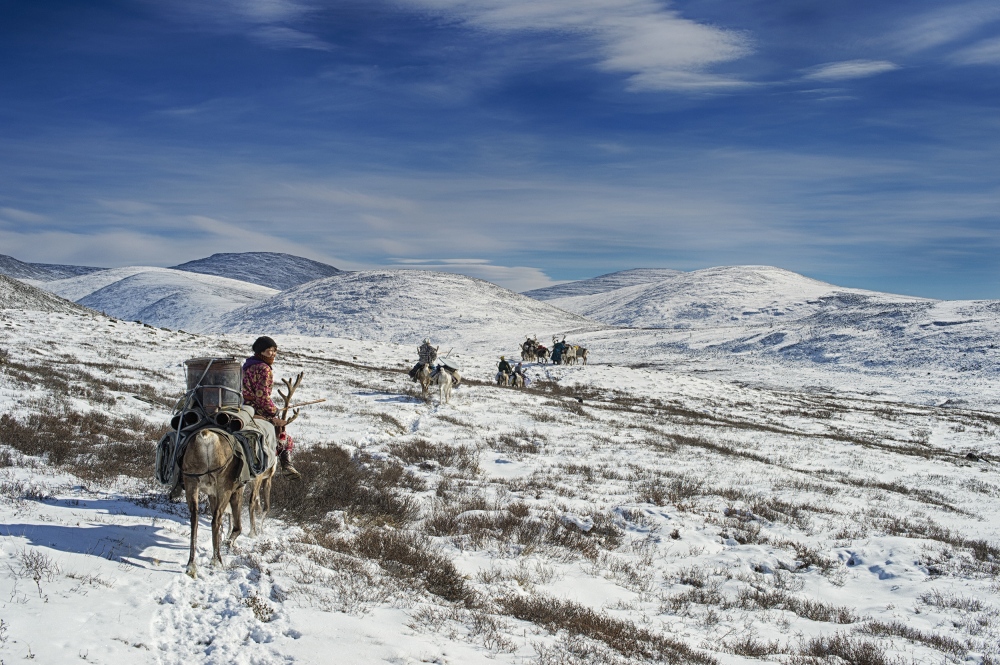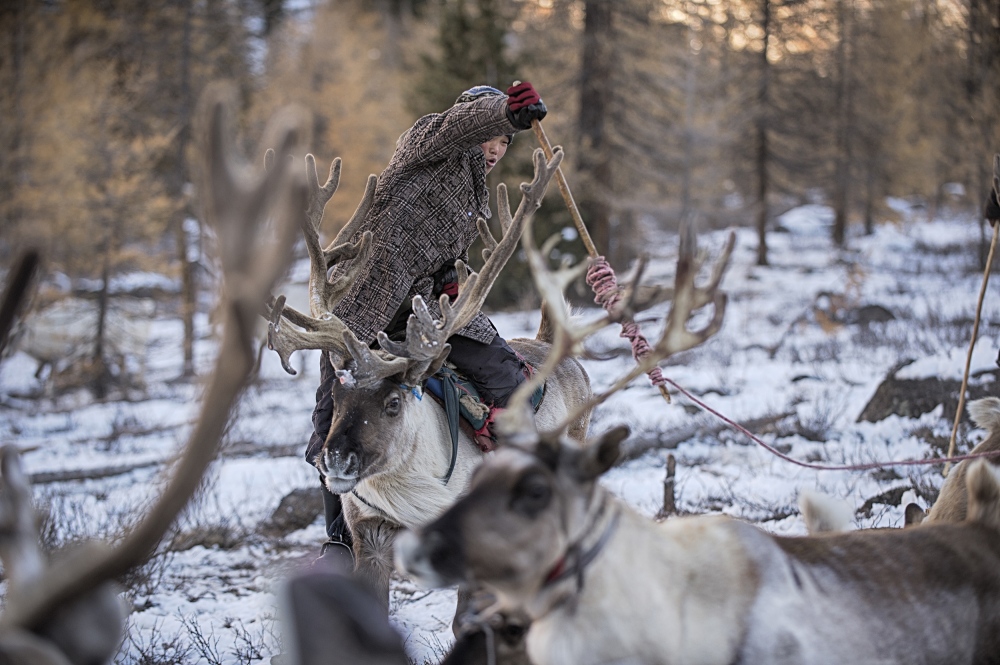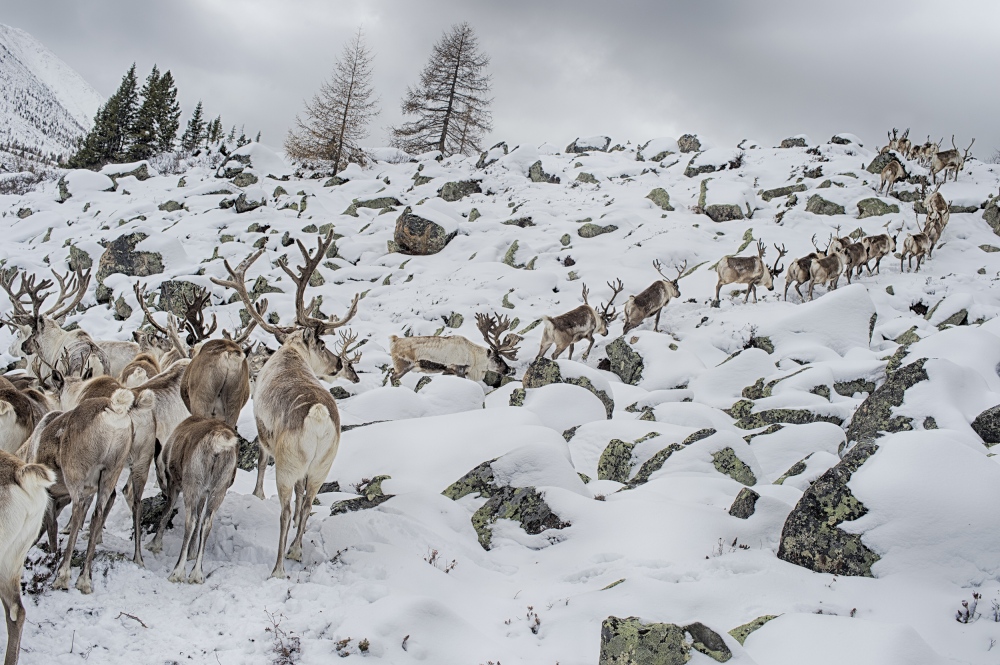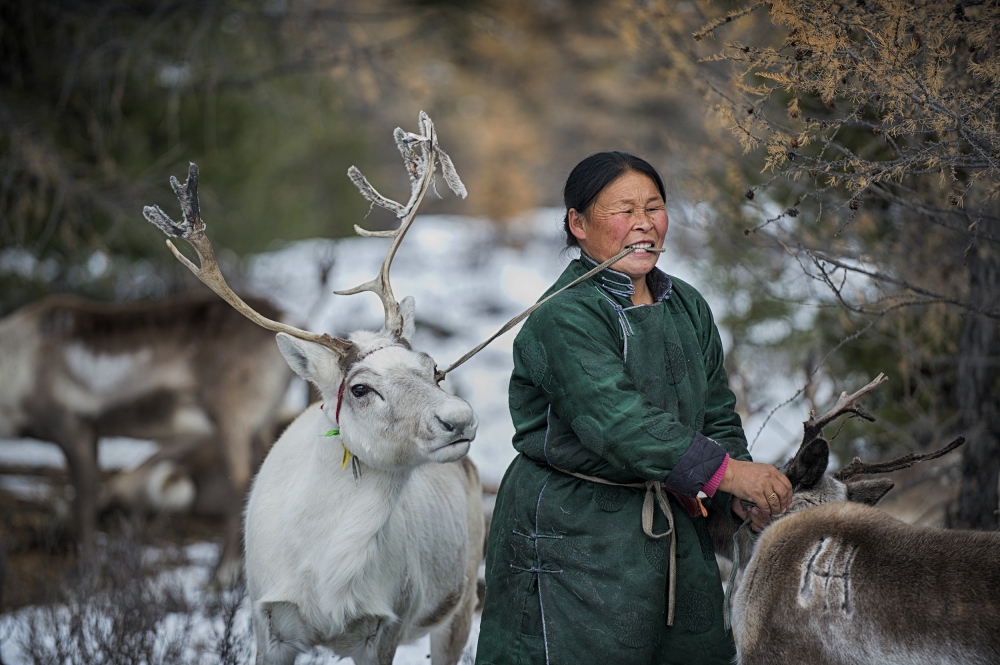5000 years of nomadic herding communities are under great threat in Mongolia. A lifestyle where humans coexisted with nature is rapidly disappearing. In the past two decades the numbers of herders have decreased dramatically.
Dukha, a community of reindeer herders in northern Mongolia, are facing cultural extinction due to the various reasons, including tourism, global warming, language loss and assimilation into civilization. The latest research states there are just 44 Dukha families left in Mongolia, and they are now forced to eat their own reindeer, their only source of income.
As a photographer I have always been intrigued by people who live and coexist with nature. Their primitive lifestyle in contrast with my modern life. The story about the Dukha nomads is part of a larger ongoing project about nomads faith in Mongolia.
To reach the Dukha nomads I had to rent 7 horses, chef/translator, guide and a driver. It took us 4 days travelling on the horseback to reach my destination. It was not possible to reach the nomads by car as there were no roads. Temperatures varied from 0 degrees during daytime to 30 minus at night. I was sleeping in a tent. I had never ridden on a horseback before, so crossing lakes and high snow peaked mountains at 3000 meters above sea level was a real challenge.
The Dukha nomads did not know about my arrival. During my arrival three dogs ran snapping towards us, but stopped just in front of us. A woman came out, calmed them down with tender movements and invited us in. Here name was Naran and she was a great-grandmother. Her husband Falcon (head of family) cut reindeer meat with a knife. The wife and children ate it with their hands. It was idyllic, but somehow wrong.
During my stay I was told by Falcon that he hunts moose and boar, but he must travel further to find food. Now he must travel three or four days to find prey, and therefore they are forced to eat their own reindeer. He explained, so does the wolfes.
The following 6 days I lived together with the nomads at fall camp. It was like a fairytale. I observed their everyday life. I slept on the floor inside their tents. It was like time and development had been standing still for these people. The women milked reindeer and retrieved water from the river. The menn chopped wood for fire and collected reindeer bucks down from the mountains to be marked. Children learned how to ride on reindeers at an age of four-five years old. A skill they all had to know to be able to survive as future nomads. Reindeer are their only way of transport. It is idyllic, but at the same time a fight for survival.
After 6 days together with the Dukha nomads, they packed their belongings and moved to their winter encampment. I travelled with my crew together with them until we reached the rooftop of Mongolia. Our roads parted and I said my goodbyes.
Also by Robert McPherson —
For more access





















